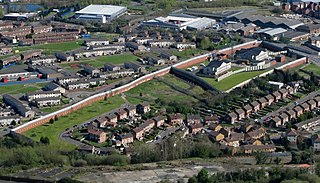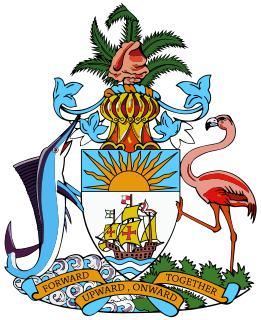
A tribunal, generally, is any person or institution with authority to judge, adjudicate on, or determine claims or disputes—whether or not it is called a tribunal in its title. For example, an advocate who appears before a court with a single judge could describe that judge as "their tribunal." Many governmental bodies that are titled as "tribunals" are described so in order to emphasize that they are not courts of normal jurisdiction. For example, the International Criminal Tribunal for Rwanda was a body specially constituted under international law; in Great Britain, employment tribunals are bodies set up to hear specific employment disputes. In many cases, the word tribunal implies a judicial body with a lesser degree of formality than a court, in which the normal rules of evidence and procedure may not apply, and whose presiding officers are frequently neither judges, nor magistrates. Private judicial bodies are also often styled "tribunals." The word tribunal, however, is not conclusive of a body's function—for example, in Great Britain, the Employment Appeal Tribunal is a superior court of record.
The court system of Canada forms the judicial branch of government, formally known as "The Queen on the Bench", which interprets the law and is made up of many courts differing in levels of legal superiority and separated by jurisdiction. Some of the courts are federal in nature, while others are provincial or territorial.

The courts of Scotland are responsible for administration of justice in Scotland, under statutory, common law and equitable provisions within Scots law. The courts are presided over by the judiciary of Scotland, who are the various judicial office holders responsible for issuing judgments, ensuring fair trials, and deciding on sentencing. The Court of Session is the supreme civil court of Scotland, subject to appeals to the Supreme Court of the United Kingdom, and the High Court of Justiciary is the supreme criminal court, which is only subject to the authority of the Supreme Court of the United Kingdom on devolution issues and human rights compatibility issues.

The Human Rights Code is a statute in the Canadian province of Ontario that guarantees equality before the law and prohibits discrimination in specific social areas such as housing or employment. The code's goal specifically prohibits discrimination based on race, colour, gender identity or expression, sex, sexual orientation, disability, creed, age and other grounds. The code is administered by the Ontario Human Rights Commission and enforced by the Human Rights Tribunal of Ontario.
Employment tribunals are tribunal public bodies in England and Wales and Scotland which have statutory jurisdiction to hear many kinds of disputes between employers and employees. The most common disputes are concerned with unfair dismissal, redundancy payments and employment discrimination. The tribunals are part of the UK tribunals system, administered by the HM Courts and Tribunals Service and regulated and supervised by the Administrative Justice and Tribunals Council.
The law of Northern Ireland refers to the legal system of statute and common law operating in Northern Ireland since the partition of Ireland established Northern Ireland as a distinct jurisdiction in 1921. Prior to 1921, Northern Ireland was part of the same legal system as the rest of Ireland.
Rhonda Paisley is an author and former politician from Northern Ireland. She is the second daughter of the late Democratic Unionist Party (DUP) leader and Northern Ireland's former First Minister Ian Paisley and lives with her mother in the family home. She attended Bob Jones University in the United States, where she was awarded a BA in Fine Art.
The Circuit Court of Ireland is an intermediate level court of local and limited jurisdiction which hears both civil and criminal matters. On the criminal side the Circuit Court hears criminal matters tried on indictment with a judge and jury, except for certain serious crimes which are tried in either the Central Criminal Court or the Special Criminal Court. On the civil side the Circuit Court has a considerable parallel jurisdiction — including equitable remedies — with the High Court but normally cannot award damages of more than €75,000. The Circuit Court also hears de novo appeals from the District Court in both civil and criminal matters.

The Federal Circuit Court of Australia, formerly known as the Federal Magistrates Court of Australia or the Federal Magistrates Service, was an Australian court with jurisdiction over matters broadly relating to family law and child support, administrative law, admiralty law, bankruptcy, copyright, human rights, industrial law, migration, privacy and trade practices.
The Equality Act Regulations 2007 was secondary legislation in the United Kingdom, outlawing discrimination in the provision of goods, facilities, services, education and public functions on the grounds of sexual orientation.

Segregation in Northern Ireland is a long-running issue in the political and social history of Northern Ireland. The segregation involves Northern Ireland's two main voting blocs—Irish nationalist/republicans and unionist/loyalist. It is often seen as both a cause and effect of the "Troubles".
The Equality Commission for Northern Ireland is a non-departmental public body in Northern Ireland established under the Northern Ireland Act 1998. "The Commission is responsible for implementing the legislation on sex discrimination and equal pay, race relations, sexual orientation, age, religious or similar philosophical belief, political opinion and disability. The Commission’s remit also includes overseeing the statutory duties on public authorities to promote equality of opportunity and good relations under Section 75 of the Northern Ireland Act 1998."
Redfearn v Serco Ltd [2006] EWCA Civ 659 and Redfearn v United Kingdom [2012] ECHR 1878 is a UK labour law and European Court of Human Rights case. It held that UK law was deficient in not allowing a potential claim based on discrimination for one's political belief. Before the case was decided, the Equality Act 2010 provided a remedy to protect political beliefs, though it had not come into effect when this case was brought forth.
The Human Rights Tribunal of Ontario is an administrative tribunal in Ontario, Canada that hears and determines applications brought under the Ontario Human Rights Code, the provincial statute that sets out human or civil rights in Ontario prohibiting discrimination on the basis of a number of grounds in certain social areas. It is one of the 13 adjudicative tribunals overseen by the Ministry of the Attorney General that make up Tribunals Ontario. Any person who believes they have been discriminated against under the Human Rights Code may bring an application to the Tribunal.
Williams v Compair Maxam Ltd [1982] ICR 156 is a UK labour law case, concerning unfair dismissal, now governed by the Employment Rights Act 1996.
In labour law, unfair dismissal is an act of employment termination made without good reason or contrary to the country's specific legislation.

The basis of the Bahamian Law and legal system lies within the English Common Law tradition. Justices of the Supreme Court, Registrars and Magistrates are all appointed by The Governor-General acting on the advice of the Judicial and Legal Service Commission, which is composed of five individuals who are headed by the Chief Justice as their chairman. The Chief Justice and the Justices of the Court of Appeal, including the President, are appointed by the Governor-General on the recommendation of the Prime Minister after consultation with the Leader of the Opposition. Once appointed, the salaries and other terms of appointment of the Chief Justice, Justices of Appeal and Justices of the Supreme Court cannot be altered to their disadvantage. Justices of the Supreme Court can serve until the age of 65 years and, where agreed among the judge, the Prime Minister and the Leader of the Opposition, may serve until the age of 67. Justices of Appeal can serve until the age of 68 years and, where agreed among the judge, the Prime Minister and the Leader of the Opposition, may serve until the age of 70 years. The law of The Bahamas makes provisions for the appointment of 12 Justices to the Bench of the Supreme Court, inclusive of the Chief Justice, and for five Justices of the Court of Appeal, inclusive of the President. The Chief Justice, as Head of the Judiciary, is an ex officio member of the Court of Appeal, but only sits at the invitation of the President.

The Defamation Act 2013 is an Act of the Parliament of the United Kingdom, which reformed English defamation law on issues of the right to freedom of expression and the protection of reputation. It also comprised a response to perceptions that the law as it stood was giving rise to libel tourism and other inappropriate claims.

McCormick v Fasken Martineau DuMoulin LLP, 2014 SCC 39 is a landmark decision of the Supreme Court of Canada in distinguishing relationships of partnership from those of employment.

Lee v Ashers Baking Company Ltd and others[2018] UKSC 49 was a Supreme Court of the United Kingdom discrimination case between Gareth Lee and Ashers Baking Company, owned by Daniel and Amy McArthur of Northern Ireland. Lee brought the case after Ashers refused to make a cake with a message promoting same-sex marriage, citing their religious beliefs. Following appeals, the Supreme Court overturned previous rulings in favour of Lee and made a judgement in favour of Ashers. The court said there was no discrimination against Lee and that Ashers' objections were with the message they were being asked to promote. The court held that people in the United Kingdom could not legally be forced to promote a message they fundamentally disagreed with. The case became known in the British and Irish media as the "gay cake" case.










